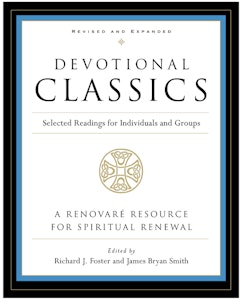Introductory Note:
Gregory of Nyssa (331–396) was one of the great “fathers” of the Church. He lived in the fourth century, a time when the persecution of the Christians was coming to an end. Gregory was one of three Greek Cappadocian fathers (the other two were Gregory’s brother, St. Basil, and their mutual friend, Gregory of Nazianzus).
He has been called “one of the most powerful and most original thinkers ever known in the history of the Church” (Louis Bouyer). His writings have had a great influence on the spirituality of the Eastern church. He was well versed in Greek philosophy, notably Platonism and Stoicism, but the basis of his thought was rooted in the Bible.
Gregory believed that the main use of the Bible was not for historical reflection but rather for growth in virtue. He and the other Church fathers used the Bible and its characters to teach us how to grow closer to God, how to “elevate” the soul to God. He saw the spiritual life as a race in which we, like St. Paul, “forget . . . what lies behind and strain . . . forward to what lies ahead” (Phil. 3:13).
The following excerpts are taken from Gregory’s most famous work, The Life of Moses. It was written in response to requests for guidance in living the virtuous life. For Gregory, perfection is discovered in continual striving—a perpetual progress rooted in the infinite grace of God.
—Richard Foster and James Bryan Smith
 Excerpt from Devotional Classics
Excerpt from Devotional Classics
The Divine Race
At horse races the spectators intent on victory shout to their favorites in the contest, even though the horses are eager to run. From the stands they participate in the race with their eyes, thinking to incite the charioteer to keener effort, at the same time urging the horses on while leaning forward and flailing the air with their outstretched hands instead of a whip.
They do this not because their actions themselves contribute anything to the victory; but in this way, by their good will, they eagerly show in voice and deed their concern for the contestants. I seem to be doing the same thing myself, most valued friend and brother. While you are competing admirably in the divine race along the course of virtue, lightfootedly leaping and straining constantly for the prize of the heavenly calling, I exhort, urge, and encourage you vigorously to increase your speed.
Ready Obedience
Since the letter which you recently sent requested us to furnish you with some counsel concerning the perfect life, I thought it only proper to answer your request. Although there may be nothing useful for you in my words, perhaps this example of ready obedience will not be wholly unprofitable to you. For if we who have been appointed to the position as fathers over so many souls consider it proper here in our old age to accept a commission from youth, how much more suitable is it, inasmuch as we have taught you, a young man, to obey voluntarily, that the right action of ready obedience be confirmed in you.
The Perfect Life
So much for that. We must take up the task that lies before us, taking God as our guide in our treatise. You requested, dear friend, that we trace in outline for you what the perfect life is. Your intention clearly was to translate the grace disclosed by my word into your own life, if you should find in my treatise what you are seeking.
I am at an equal loss about both things: it is beyond my power to encompass perfection in my treatise or to show in my life the insights of the treatise. And perhaps I am not alone in this. Many great men, even those who excel in virtue, will admit that for them such an accomplishment as this is unattainable. As I would not seem, in the words of the Psalmist, there to tremble for fear, where no fear was, I shall put forth for you more clearly what I think.
Ever Running the Course of Virtue
The perfection of everything which can be measured by the senses is marked off by certain definite boundaries. Quantity, for example, admits both continuity and limitation. The person who looks at the number ten knows that its perfection consists in the fact that it has both a beginning and an end.
But in the case of virtue we have learned from the Apostle that its one limit of perfection is the fact that it has no limit. For that divine Apostle, great and lofty in understanding, ever running the course of virtue, never ceased straining toward those things that are still to come. Coming to a stop in the race was not safe for him. Why? Because no Good has a limit in its own nature but is limited by the presence of its opposite, as life is limited by death and light by darkness. And every good thing generally ends with all those things which are perceived to be contrary to the good.
Stopping in the Race
Just as the end of life is the beginning of death, so also stopping in the race of virtue marks the beginning of the race of evil. Thus our statement that grasping perfection with reference to virtue is impossible was not false, for it has been pointed out that what has been marked off by boundaries is not virtue.
I said that it is also impossible for those who pursue the life of virtue to attain perfection. The meaning of this statement will be explained.
The Divine One is himself the Good (in the primary and proper sense of the word), whose very nature is goodness. This he is and he is so named, and is known by this nature. Since, then, it has not been demonstrated that there is any limit to virtue except evil, and since the Divine does not admit of an opposite, we hold the divine nature to be unlimited and infinite. Certainly whoever pursues true virtue participates in nothing other than God, because he is himself absolute virtue. Since, then, those who know what is good by nature desire participation in it, and since this good has no limit, the participant’s desire itself necessarily has no stopping place but stretches out with the limitless.
The Unattainable Commandment
It is therefore undoubtedly impossible to attain perfection, since, as I have said, perfection is not marked off by limits: The one limit of virtue is the absence of a limit. How then would one arrive at the sought-for boundary when he can find no boundary?
Although on the whole my argument has shown that what is sought for is unattainable, one should not disregard the commandment of the Lord which says, Therefore be perfect, just as your heavenly father is perfect. For in the case of those things which are good by nature, even if men of understanding were not able to attain everything, by attaining even a part they could yet gain a great deal.
Becoming God’s Friend
Since the goal of the virtuous way of life is the very thing we have been seeking, it is time for you, noble friend, to be known by God and to become his friend.
This is true perfection: not to avoid a wicked life because like slaves we servilely fear punishment, nor to do good because we hope for rewards, as if cashing in on the virtuous life by some business-like arrangement. On the contrary, disregarding all those things for which we hope and which have been reserved by promise, we regard falling from God’s friendship as the only thing dreadful and we consider becoming God’s friend the only thing worthy of honor and desire. This, as I have said, is the perfection of life.
As your understanding is lifted up to what is magnificent and divine, whatever you may find (and I know full well that you will find many things) will most certainly be for the common benefit in Christ Jesus. Amen.
Bible Selection: Philippians 3:12 – 21
Not that I have already obtained this or have already reached the goal; but I press on to make it my own, because Christ Jesus has made me his own. Beloved, I do not consider that I have made it my own; but this one thing I do: forgetting what lies behind and straining forward to what lies ahead, I press on toward the goal for the prize of the heavenly call of God in Christ Jesus. Let those of us then who are mature be of the same mind; and if you think differently about anything, this too God will reveal to you. Only let us hold fast to what we have attained.
Brothers and sisters, join in imitating me, and observe those who live according to the example you have in us. For many live as enemies of the cross of Christ; I have often told you of them, and now I tell you even with tears. Their end is destruction; their god is the belly; and their glory is in their shame; their minds are set on earthly things. But our citizenship is in heaven, and it is from there that we are expecting a Savior, the Lord Jesus Christ. He will transform the body of our humiliation that it may be conformed to the body of his glory, by the power that also enables him to make all things subject to himself.
From Devotional Classics, edited by Richard Foster and James Bryan Smith (HarperCollins, 2005). Used with permission.
Photo by George Hiles on Unsplash
Text First Published December 1992 · Last Featured on Renovare.org January 2023


